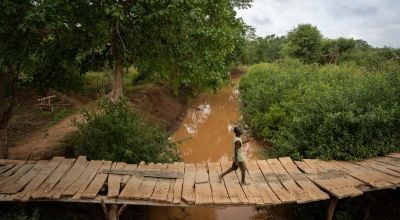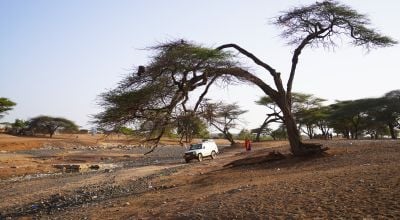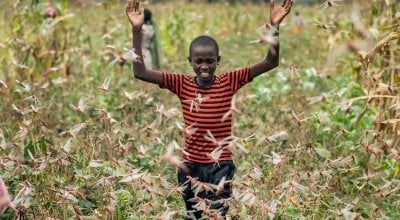
Read our 2024 annual report

Knowledge Hub
Supporting the most vulnerable in Ethiopia
In a small village in Ethiopia, two grandparents look to the future with hope for their grandchild.
A struggling household
Assefu who is in her 60s and her 80-year-old husband Zereabruk are farmers in Ayba Kebele Kokahle village, Ethiopia. While their 20-year-old daughter Genet attends college at the Adigrat University, they look after their grandchild Fekadu. Fekadu is now 1-years-old and lives a healthy life however this was not always the case. After his mother left for college, he became very ill.
My grandson became very thin after his mother left him, he developed a cough and diarrhoea which made him very weak and close to death.”
Concern’s response
Fekadu was admitted to the Concern and European Civil Protection and Humanitarian Aid Operations (ECHO) outpatient therapeutic programme when he was seven months old. He weighed just 5.9kg and was diagnosed with severe acute malnutrition. After two months of treatment, he recovered and was admitted to the targeted supplementary feeding programme. With further treatment, Fekadu finally reached a healthy weight of 8Kg. Assefu also received training throughout the programme in how to prepare homemade nutritious meals and how to keep her household clean.
I followed the food preparation demonstration from the programme and made a variety of homemade meals. My grandchild started getting better and better. His weight improved and he became stronger and more active than ever before.”
Reaching the wider community
Along with this, the correct feeding and hygiene practices also reached the wider community thanks to Assefu.
I showed some of my neighbours the appropriate child feeding methods and now they have a better understanding of proper feeding and hygiene practices.”
Looking to the future
When asked about her plans for the future, Assefu had this to say;
From now on until his mother finishes her studies, I plan on making a variety of food like gogo (bread), milk and porridge. I will feed him at least five times a day and keep him clean with soap.”
Learn more
Learn more about the diversity of our work in Ethiopia.
Read more





